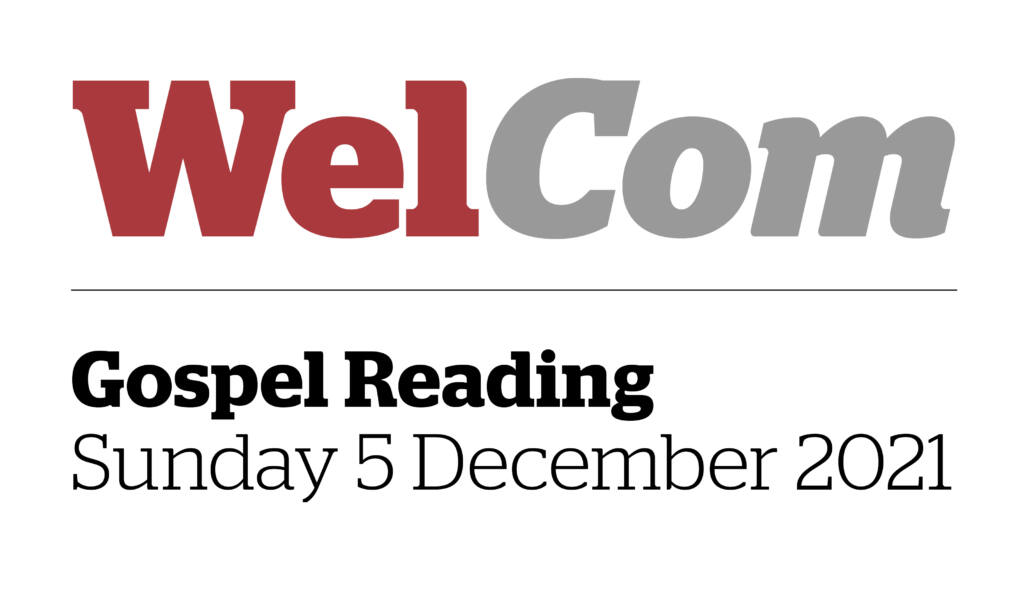WelCom December 2021
Second Sunday of Advent – Gospel Luke 3: 1-6
1 In the fifteenth year of the reign of Tiberius Caesar, when Pontius Pilate was governor of Judea, Herod was tetrarch of Galilee, his brother Philip tetrarch of the region of Ituraea and Trachonitis, and Lysanias was tetrarch of Abilene,2 during the high-priesthood of Annas and Caiaphas, the word of God came to John the son of Zechariah in the desert.
3 John went throughout the whole region of the Jordan, proclaiming a baptism of repentance for the forgiveness of sins, 4 as it is written in the book of the words of the prophet Isaiah: A voice of one crying out in the desert:
‘Prepare the way of the Lord, make straight his paths. 5 Let every valley be filled in, every mountain and hill be levelled, winding roads shall be made straight, and the rough ways made smooth,6 and all humanity will see the salvation of God.’
Luke’s history of John the Baptist
Tom Gibson
Luke, at the start of his third chapter, gives a detailed history of the place and time of the beginning of Christendom. He does this by telling us that Tiberius was in his 15th year as Emperor of Rome, and as at 28 or 29 CE (the date of his writing), Luke named the three rulers of the Jewish homeland.
Judea in the South was governed by Pilate; Galilee in the north ruled by Herod Antipas, son of Herod the Great and in the area north and east of Galilee was ruled by another son of Herod the Great; Phillip. Luke’s feel for history starts off the gospel proper and this helps us to understand the context in which John the Baptist’s preaching ministry is set.
The Gospel Luke 3: 1-6 tells us who John the Baptist is and how he went through the Jordan River area proclaiming a baptism of repentance, relating it to what the prophet Isaiah said. Luke uses this opportunity to express God’s concern for the Gentiles by quoting the Isaiah prophecy that John proclaimed: ‘all flesh will see the Salvation of God’.
John is God’s prophet who does not belong to the period of the Old Testament prophets but instead helps to fulfill their prophecies, the central figure of which is Jesus. In doing so, John, becomes an itinerant preacher preparing the way for Jesus in fulfilment of the prophecy that Gabriel made to his father Zechariah and also of the Prophet Iaisiah. Verse 5 of chapter 3 refers to making paths straight, which relates to the need for radical changes in a person’s lifestyle. Verse 6 refers to how God’s people move out to encircle people of other nations.
It is clear the work of John the Baptist resembles opportunities and responsibilities that we ourselves have in introducing Christ to those around us. Of course the culture of today does not permit traditional preaching as we may envisage that of John the Baptist, but that is only one of many strategic introductory avenues available. Often less is more, but at times a direct reference to wholesome truths of the Bible can be uncannily appropriate, particularly in business – especially if it is cleverly applied. We must follow the guidance of His Spirit – as John the Baptist did. We must rely on the Spirit’s wisdom to craft our introductory references and our faith to leave them where they fall.
Tom Gibson is a retired dairy farmer and a parishioner at Immaculate Conception, Stratford, Taranaki.
